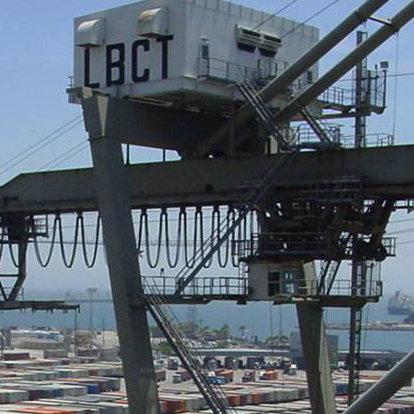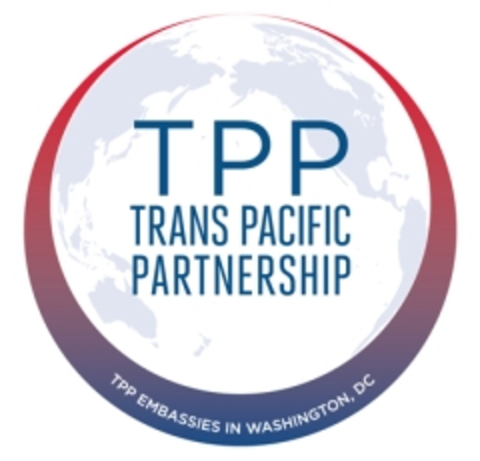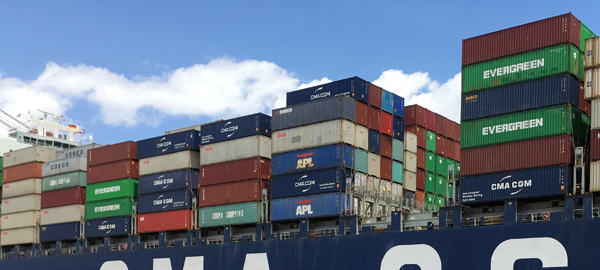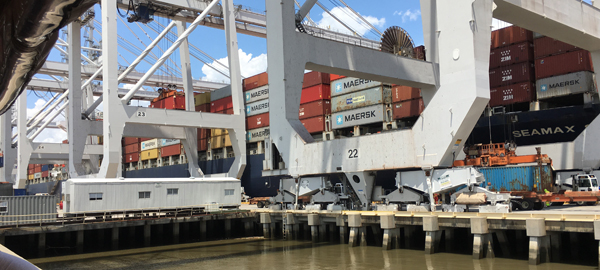
FTZ’ine May 2022
May 3, 2022
FTZ’ine July 2022
June 30, 2022Summer Heat Is Here -
The FTZ'ine staff hopes everyone enjoyed a well-deserved Memorial Day break. That unofficial start to summer has brought heat, literally and figuratively, to your Nation’s Capital.
There are signs that the US economy is slowing quickly. Major retailers including Target and Walmart just reported weaker-than-expected first quarter sales and earnings. Wall Street has struggled to digest exactly what that means for the near term and stock prices dropped sharply in May. Several economists foresee a return to growth for the rest of 2022 based on job market strength, but companies from Ford to Paypal have just announced layoffs.
European leaders reached agreement on an embargo of most Russian oil delivered via ocean. That will likely further strain crude oil inventories and drive high gasoline prices higher. The suspension of Ukrainian grain exports via the Black Sea may cause near term wheat shortages and add upward pressure to global food prices.
Port operations in Shanghai are almost fully restored after China’s most recent COVID-related lockdown, which means shipping volumes to the US will rise from current levels. However, the PMA and ILWU have stopped negotiating a new contract, so putting additional containers in transit bodes poorly for already congested US ports ahead of shipping volumes that normally rise beginning in August.

Top Story: ILWU Negotiations Halted
The International Longshore and Warehouse Union suspended west coast negotiations for a new labor contract. Neither the ILWU or the Pacific Maritime Association (PMA) confirmed the reason for the stoppage, although automation is a sticking point whenever this contract is negotiated.
Discussions are expected to resume today.
Bill Mongelluzzo of the Journal of Commerce was the first to report that the ILWU had suspended negotiations until June 1st. Negotiations on the new labor deal began on May 10th, but didn’t last very long.
During an interview with Bloomberg last month, Port of Long Beach Executive Director Cordero explained that he does not see the parties reaching an agreement before the end of June.
“They will resolve their differences within a reasonable time. It’s not going to be before 1 July. But I think we may be looking to a couple of months thereafter. On that front, I’m optimistic.” Cordero said.
The PMA has long fought to increase automation on the west coast but with limited success. It is easier to have a hot pizza delivered to your front door than to schedule a reliable appointment to pick up a container at a west coast terminal.
Tech Tip: Summer is a Great Time for System Review!
Summer can be an excellent time for FTZ system review and clean-up. There are a few good reasons to consider doing this now:
- If you have a Mar 31 fiscal year end, you may be doing FTZ annual reporting activities, and are already in the review and reset mode.
- Plant activity may be slower with many rotating vacation plans, so other FTZ processing duties may be lighter.
- The busy Christmas season hasn’t quite kicked in yet, and while schedules are sometimes chopped up with holidays and vacations, this kind of work can be done in small increments when time is available.
Other summer FTZ activities to consider include:
- Annual reporting – If your zone year ended on March 31, don’t forget about your Annual Reconciliation Report letter due to CBP by June 30. It is also a best practice to submit the Annual System Review letter at the same time.
- Purging records – Activity records must be retained for 5 years after goods are entered for consumption.
- Archiving older electronic records can improve system processing and keeping paper files purged ensures there is room for the incoming records that need to be stored.
- Practice a compliance review – Take a look through your procedure manual, and practice researching the necessary documents and files for a compliance review.
We recommend these activities year-round, but summer can be a convenient time. ISCM assists FTZs with system review and compliance audit preparation, and if you want to check these off quicker so you can get to the pool sooner, email us at Info@iscm.co.


Relations With Mexico Still Strained
The President of Mexico has indicated that he will not attend a June summit in Los Angeles because the Biden administration refuses to invite several leftist governments. If he indeed boycotts the event, other South and Central American countries may as well, eroding the potential impact of the gathering.
Mexico is arguably the most important Latin American participant in the upcoming Summit of the Americas, which administration officials have said will include a special focus on immigration.
The dispute over Summit of the Americas attendees adds to the list of disagreements the United States already has with Mexico over immigration, rules surrounding private electricity generation in Mexico, and pay rates at Mexican auto plants.
President Andrés Manuel López Obrador said he was still awaiting a response from President Biden or the U.S. State Department to his demand that all countries in the Western Hemisphere be invited.
Mexican and American officials also disagree about an electric power reform that seeks to limit foreign-built renewable energy plants and grant a majority market share of electricity sales in Mexico to Mexico’s state-owned power utility.
President Obrador is further pestered by US complaints about wage practices in Mexican auto plants.
In May 2021, U.S. Trade Representative (USTR) Katherine Tai invoked powers under USMCA and asked Mexico to probe an April 2021 union contract vote at the General Motors Silao plant.
Reuters reported that as a result of the inquiry, GM agreed to an 8.5% wage hike with a new, independent union at its a pickup truck plant in the central Mexican city of Silao. Tai said that under labor protections of the USMCA trade deal, "workers no longer have to tolerate contracts negotiated behind their backs and have the right to vote on an agreement after it's negotiated."
USTR is considering filing another complaint over alleged labor abuses at an auto parts plant owned by Netherlands-based Stellantis.
If the U.S. Trade Representative takes up the probe into Teksid Hierro de Mexico, in the northern border state of Coahuila, it would mark the fourth labor complaint against a foreign company in Mexico since the United States-Mexico-Canada Agreement (USMCA) went into effect.
ITC Public Hearing Complete, Site Visits On Tap
On May 17th the U.S. International Trade Commission (ITC) held a virtual public hearing to support their investigation titled “Foreign Trade Zones (FTZs): Operations and Conditions of Competitiveness in U.S. FTZs and Similar Programs in Canada and Mexico”.
Multiple parties testified at the 4+ hour hearing, which included several rounds of questions from each of the Commissioners.
All of the testimony presented was sympathetic to the problem that US manufacturers face when competing with duty-free imports from Canadian and Mexican competitors. Not all the testimony was supportive of foreign-trade zones.
The Coalition for a Prosperous America was hoping that alternate solutions to the USMCA disparity problem could be proposed and looked for an answer that did not require “making every US manufacturer a foreign-trade zone.”
The ITC will soon begin touring FTZ sites on the east coast, and the completed study is expected to be delivered in the spring of next year.


Lack Of Clarity On Looming UFLPA Enforcement Concerns Importers
Under the new Uyghur Forced Labor Prevention Act (UFLPA), the US Forced Labor Enforcement Task Force (FLETF) will identify companies inside and outside of China suspected of using components and raw materials made with forced labor.
Shipments from identified entities will be banned from import into the United States beginning June 21st.
The Department of Homeland Security (DHS) chairs FLETF. Other voting members of the Task Force are USTR and the Departments of Labor, State, Treasury, Justice, and Commerce. The group will create an ‘Entities List’ and materials from such companies would then be precluded from import.
Some importers have already received letters that they have a history of import activity with companies that will likely be included on the new list. Other importers are wary that their supply chains will be affected without advance notice when the law goes into effect.
Customs and Border Protection has not yet offered clarification on what will satisfy the “clear and convincing” evidentiary standard mandated by the UFLPA. CBP has confirmed that evidence will be collected through the existing “Request For Information” process on Form CF-28. When merchandise is detained, the Request For Information is then supposed to include the complete list of the information that would be required to win release of the import shipment.
It is unclear how many organizations FLETF will name in their initial list, but trade experts said many businesses that relied on Chinese factories might realize that at least some part or raw material in their supply chains could be traced to Xinjiang.
Those that have already tried have found collecting the required information difficult.
L.L. Bean, the privately held outdoors retailer based in Maine, said in a statement that it had ceased sourcing from textile mills in Xinjiang in 2020 and “completely removed ourselves out of the cotton production process” in early 2021.
“We have full confidence in our due diligence process to state that none of our products are made with Chinese cotton or use forced labor,” the company said.
The New York Times reported that Eileen Fisher, another privately held clothing brand, was pushed to make a similar decision. Inka Apter, a designer for fabric research and development at Eileen Fisher, said that while no Eileen Fisher garments were being made in Xinjiang and that it wasn’t getting fabric or yarn from the region, the company didn’t know whether any of the cotton fiber it was using could be traced to Xinjiang.
“Two years of pandemic and a deteriorating political situation made it impossible to fully vet what is happening on the ground,” Ms. Apter said.
“You know, maybe this farm got certified, but we have no way to independently audit, the people are intimidated, the auditors don’t want to work on the ground anymore, it’s impossible to really go by that,” Ms. Apter said. By 2021, Eileen Fisher had removed any Xinjiang cotton fiber from its supply chain, she said.
The decisions by smaller, privately owned companies to leave China have been more straightforward than they were for bigger retailers, which have cultivated a lucrative consumer market in the country.
“It’s very hard for a giant company,” said Michael Posner, who is the chair of the Fair Labor Association, a nonprofit organization that has worked with companies like Apple to investigate worker conditions at suppliers’ factories.
“It’s possible to say, ‘We’re trying,’ and they are, but they are nowhere close to achieving a system where their cotton comes (100%) from other places,” he added.
For fast fashion companies like H&M and luxury brands like Burberry, the decision ultimately amounts to picking a side: China or the rest of the world.
Shanghai Restart May Drive Additional US Congestion
Bloomberg has reported that according to China’s Ministry of Transport official Li Huaqiang, the daily container throughput at the Port of Shanghai has now recovered to over 95% per cent of its normal level.
“Our efforts at facilitating logistics are gradually moving from opening up the main artery to smoothing out the fine details,” Li added.
CMA CGM has also confirmed in its latest customer advisory that pressure on Shanghai yard resources is easing, while the waiting time for ships using the Waigaoqiao terminals has shortened as more port employees resume work. The ongoing backlog will likely cause congestion deep into 2022 however.
Although average waiting times for container vessels remain around 13 hours higher compared to last year’s levels, the waiting times at Shanghai are showing signs of recovery according to VesselsValue, now down to 36 hours from a peak of 69 hours in late April.


US Launches Pacific Trading Block To Counter China
President Biden launched a new trade deal with 12 Indo-Pacific nations designed to signal U.S. dedication to the contested region.
The President, speaking at a news conference after holding talks with Japan’s Prime Minister Fumio Kishida, announced the Indo-Pacific Economic Framework (IPEF).
The White House said the framework will help the United States and Asian economies work more closely on issues including supply chains, digital trade, clean energy, worker protections and anticorruption efforts.
The administration took pains to say the new framework is not a free trade agreement.
The launch of IPEF is part of ongoing US efforts to bolster ties with Pacific allies in light of China’s growing economic and military might in the region. To wit, while the President was in the region, China’s Foreign Minister Wang Yi visited Fiji and other South Pacific nations with a 20-person delegation in a display of Beijing’s growing military and diplomatic presence.
Nations joining the U.S. in the pact are: Australia, Brunei, India, Indonesia, Japan, South Korea, Malaysia, New Zealand, the Philippines, Singapore, Thailand and Vietnam. Along with the United States, they represent 40% of world GDP.
Biden and Kishida were joined for the launch event by Indian Prime Minister Narendra Modi, while representatives from the other countries appeared by video.
Kishida welcomed the new trade pact but said he still hoped the President would reconsider the United States’ position and return it to the Trans-Pacific Partnership. The Prime Minister of New Zealand, Jacinda Ardern, echoed the desire that the United States should return to the regional trade agreement if it wanted to engage economically with the Indo-Pacific region.
The new pact comes at a moment when the administration believes it has the edge in its competition with Beijing. Bloomberg Economics published a report last week projecting U.S. GDP growth at about 2.8% in 2022 compared to 2% for China, which has been trying to contain the coronavirus through strict lockdowns while also dealing with a property bust. The slowdown has undermined assumptions that China would automatically supplant the U.S. as the world’s leading economy.
“The fact that the United States will grow faster than China this year, for the first time since 1976, is a quite striking example of how countries in this region should be looking at the question of trends and trajectories,” said White House national security adviser Jake Sullivan.

FTZ Staff Activity
- FTZ Board Staff processed a Minor Boundary Modification (S-74-2022) in FTZ 104L on behalf of Hugo Boss USA, Inc., in Midway, GA, on May 2, 2022
- FTZ Board Staff processed a Minor Boundary Modification (S-75-2022) in FTZ 7 on behalf of A.Z.C. Metropolitan Distributors, Inc., in Toa Baja, PR, on May 2, 2022
- FTZ Board Staff processed a Termination (S-76-2022) in FTZ 29N on behalf of Amcor Flexibles LLC, in Shelbyville, KY, on May 10, 2022
- FTZ Board Staff processed a Minor Boundary Modification (S-77-2022) in FTZ 75T on behalf of Green Worldwide Shipping, LLC, in Phoenix, AZ, on May 11, 2022
- FTZ Board Staff processed a Minor Boundary Modification (S-78-2022) in FTZ 241 on behalf of SHM LMC LLC DBA Safe Harbor Lauderdale Marine Center, in Fort Lauderdale, FL, on May 12, 2022
- FTZ Board Staff processed a Minor Boundary Modification (S-79-2022) in FTZ 86 on behalf of TIGERS, a JAS Company, in Tacoma, WA, on May 12, 2022
- FTZ Board Staff processed a Subzone (S-80-2022) in FTZ 7 on behalf of Dantzler Trade, Inc., in Toa Baja, PR
- FTZ Board Staff processed a Minor Boundary Modification (S-81-2022) in FTZ 38A on behalf of BMW Manufacturing Co LLC, in Greer, SC, on May 13, 2022
- FTZ Board Staff processed a Termination (S-82-2022) in FTZ 104A on behalf of Merck & Co., in Dougherty County, GA, on May 16, 2022
- FTZ Board Staff processed a Minor Boundary Modification (S-83-2022) in FTZ 22 on behalf of Morrison Express Corporation (USA), in Elk Grove Village, IL, on May 16, 2022
- FTZ Board Staff processed a Minor Boundary Modification (S-84-2022) in FTZ 35E on behalf of Philly Shipyard, Inc., in Philadelphia, PA, on May 17, 2022
FTZ Board Activity
- Epoch International Enterprises, Inc. submitted a notification of proposed production activity for printed circuit board assemblies and enclosures within FTZ 18 in Fremont, California. MORE
- Patheon Pharmaceuticals Inc. submitted a notification of proposed production activity for pharmaceutical products within FTZ 46 in Cincinnati, Ohio. MORE
- AbbVie Ltd. submitted a notification of proposed production activity for additional components of pharmaceutical products within FTZ 7 in Barceloneta, Puerto Rico. MORE
- Dantzler Trade, Inc. submitted an application for subzone status for its facility within FTZ 7 in Toa Baja, Puerto Rico. MORE
- BMW Manufacturing Company, LLC received authorization of production activity for additional components of passenger motor vehicles within FTZ 38 in Spartanburg, South Carolina. MORE
- TTI, Inc. received approval for the expansion of Subzone 196A within FTZ 196 in Fort Worth, Texas. MORE
- AbbVie Ltd. submitted a notification of proposed production activity for additional components of pharmaceutical products within FTZ 22 in Chicago, Illinois. MORE

Summer Heat Is Here –
The FTZ’ine staff hopes everyone enjoyed a well-deserved Memorial Day break. That unofficial start to summer has brought heat, literally and figuratively, to your Nation’s Capital.
There are signs that the US economy is slowing quickly. Major retailers including Target and Walmart just reported weaker-than-expected first quarter sales and earnings. Wall Street has struggled to digest exactly what that means for the near term and stock prices dropped sharply in May. Several economists foresee a return to growth for the rest of 2022 based on job market strength, but companies from Ford to Paypal have just announced layoffs.
European leaders reached agreement on an embargo of most Russian oil delivered via ocean. That will likely further strain crude oil inventories and drive high gasoline prices higher. The suspension of Ukrainian grain exports via the Black Sea may cause near term wheat shortages and add upward pressure to global food prices. Port operations in Shanghai are almost fully restored after China’s most recent COVID-related lockdown, which means shipping volumes to the US will rise from current levels. However, the PMA and ILWU have stopped negotiating a new contract, so putting additional containers in transit bodes poorly for already congested US ports ahead of shipping volumes that normally rise beginning in August.

